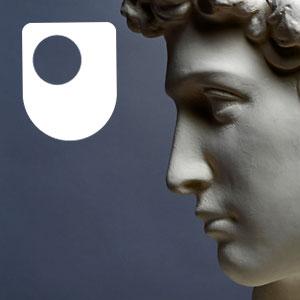

Reading Political Philosophy: From Machiavelli to Mill - Audio
The Open University
The history and development of political philosophy has been dominated by many inspirational and radical thinkers. The tracks on this album offer both an introduction and an in-depth insight into the leading theorists in this field and their most important works. In a series of lively and invigorating discussions, leading political philosophers examine canonical texts and seminal thinkers from the Seventeenth to the Nineteenth Century, highlighting their intellectual and cultural impact and the context in which the texts were originally written. This material forms part of The Open University course AA311: Reading political philosophy, from Machiavelli to Mill.
Episodes
Mentioned books

Aug 23, 2009 • 56sec
Reading Political Philosophy: From Machiavelli to Mill
Discover the evolution of political philosophy from the 17th to the 19th century through the works of influential thinkers. Gain insights into their significant contributions and analyze the intellectual and cultural context. Leading political philosophers provide comprehensive explanations, offering a journey through the development of political theory.

Aug 23, 2009 • 48min
Machiavelli: Nigel Warburton and Quentin Skinner
Nigel Warburton interviews Quentin Skinner on Machiavelli's 'The Prince', discussing virtues in public life, historical context of Florence in 1513, Machiavelli's critique of traditional virtues, and the role of deception in politics. They explore the necessity of prioritizing state safety over morality and delve into the complexities of moral decision-making in politics.

Aug 23, 2009 • 53min
Hobbes: Jon Pike and Quentin Skinner
Concentrating on the masterpiece Leviathan, Hobbes’ political and social doctrine is defined and considered, along with Hobbes’ thought on the viability of monarchy.

Aug 23, 2009 • 53min
Locke: Jon Pike and Jeremy Waldron
A wide-ranging discussion of Locke using the Second Treatise as a starting point. Locke’s relationship to liberalism and modern liberal theory is analysed, as well as his relationship to the ‘state of nature’ debate.

Aug 23, 2009 • 56min
Rousseau: Derek Matravers and Timothy O’Hagan
Rousseau and his opinions on liberty are discussed with particular reference to his seminal 1755 text Discourse on Inequality. A wide number of topics including sovereignty, legislators and social choice, is broached.

Aug 23, 2009 • 29min
Marx: Derek Matravers and Jonathan Wolff
This discussion focuses on the concept of production and labour in Marx’s writings, and the way in which they highlight aspects of fundamental historical materialism, formal equality and the relationship between the state and the individual.

Aug 23, 2009 • 30min
Derek Matravers and Gerry Cohen on The German Ideology
The German Ideology, Marx and Engels’ 1845 book, is dissected and discussed. The discussion highlights the importance of the book in terms of Marx and the development of his theory of history, the inevitabilities in history, and rights as a moral truth.

Aug 23, 2009 • 29min
Mill: Nigel Warburton and Alan Ryan
Nigel Warburton and Alan Ryan dissect Mill's On Liberty, exploring self-development, harm principle, and paternalism. They discuss the importance of individual freedom, diversity, and human potential while critiquing the complexities of Mill's liberalism and his views on free speech and truth.

Aug 23, 2009 • 19min
Mill: Nigel Warburton and Janette Radcliffe-Richards
This discussion focuses on a feminist reading of Mill, concentrating particularly on his treatise On the Subjection of Women and its relevance to 19th Century society and culture. Mill’s precarious position as an early feminist is discussed in depth.


